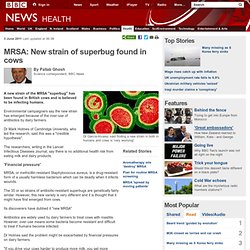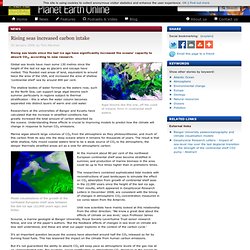

466432a.pdf (application/pdf Object) Do Animals Enjoy Sex? Animals obviously hook up, at least during mating season. But do they like it? According to experts, there are two answers: "yes" and "it is impossible to know. " "Mosquitoes, I don’t know," hedged Mark Bekoff, a University of Colorado biologist and author of "The Emotional Lives of Animals" (New World Library), "but across mammals, they enjoy sex. " In fact the enjoyment of sex among humans and among animals may be similar in that it's all experienced in very primitive parts of the brain.
Really wild orgasms Not only do animals enjoy the deed, they also likely have orgasms, he said. Then why do, say, wolves abstain most of the year? Humans, though, are not alone in wanting sex regardless of reproductive timing. Al that said, we can never completely know another being's emotional state, Bekoff points out, adding that it can even be hard to judge that of a human. And of course, Nature offers her own proof that sex is pleasurable: plentiful offspring. Dolphins, honey guides and golden eagles are man's best friends. New strain of MRSA superbug found in cows. 3 June 2011Last updated at 00:39 By Pallab Ghosh Science correspondent, BBC News Dr Garcia-Alvarez said finding a new strain in both in humans and cows is 'very worrying' A new strain of the MRSA "superbug" has been found in British cows and is believed to be infecting humans.

Environmental campaigners say the new strain has emerged because of the over-use of antibiotics by dairy farmers. Dr Mark Holmes of Cambridge University, who led the research, said this was a "credible hypothesis". The researchers, writing in the Lancet Infectious Diseases Journal, say there is no additional health risk from eating milk and dairy products. 'Financial pressure' MRSA, or methicillin-resistant Staphylococcus aureus, is a drug-resistant form of a usually harmless bacterium which can be deadly when it infects wounds. The 35 or so strains of antibiotic-resistant superbugs are genetically fairly similar. Its discoverers have dubbed it "new MRSA" Rising seas increased carbon intake. Rising seas increased carbon intake 30 January 2009, by Tom Marshall Rising sea levels since the last ice age have significantly increased the oceans' capacity to absorb CO2, according to new research.

Algal blooms like this one, off the coast of Ireland, form in continental shelf waters. Global sea levels have risen some 130 metres since the height of the last ice age as glaciers and icecaps have melted. This flooded vast areas of land, equivalent to around twice the area of the USA, and increased the area of shallow 'continental shelf' sea by around 400 per cent. The shallow bodies of water formed as the waters rose, such as the North Sea, can support large algal blooms each summer particularly in regions subject to thermal stratification - this is when the water column becomes separated into distinct layers of warm and cold water. Model visualisations of the growth of the northwest European shelf seas between the last ice age (22,000 years ago) and today.
Interesting? Bacteria 'linked' to Parkinson's disease. 23 May 2011Last updated at 00:03 Could this bacterium cause Parkinson's disease?

The bacteria responsible for stomach ulcers have been linked to Parkinson's disease, according to researchers in the US. Mice infected with Helicobacter pylori went onto develop Parkinson's like symptoms. The study, presented at a meeting of the American Society for Microbiology, argues that infection could play "a significant role". The charity Parkinson's UK said the results should be treated with caution. Parkinson's disease affects the brain and results in slow movements and a tremor. Middle-aged mice, the equivalent of being between 55 and 65 in humans, were infected. These changes were not noticed in younger mice.
Toxic Dr Traci Testerman, from the Louisiana State University Health Sciences Center, said: "Our findings suggest that H. pylori infection could play a significant role in the development of Parkinson's disease in humans. Killer Whale vs. Jaws. A new branch found in the fungal tree of life. The fungus kingdom contains diverse eukaryotic organisms, including the yeast that we add in fermentation to make beer, the mold that grows on old bread, and the mushrooms that we eat.

While we are familiar with many types of fungi, scientists are still trying to fill out the fungal tree of life. Mainly, researchers are unsure about the limits of fungal diversity and how different fungi relate to one another evolutionarily. A recent paper in Nature suggests that scientists have been unaware of a large fraction of organisms in the fungus kingdom. Lead author Meredith Jones and her colleagues report the discovery of a new clade, an entirely new branch on the fungal tree of life. They named this new clade cryptomycota, which roughly translates to “hidden from the kingdom Fungi.”
Jones and her team first discovered the cryptomycota clade by aligning DNA sequences from published fungal phylogenies with DNA sequences in GenBank, the NIH database of all publicly available DNA sequences. Brainz — Learn something new today.